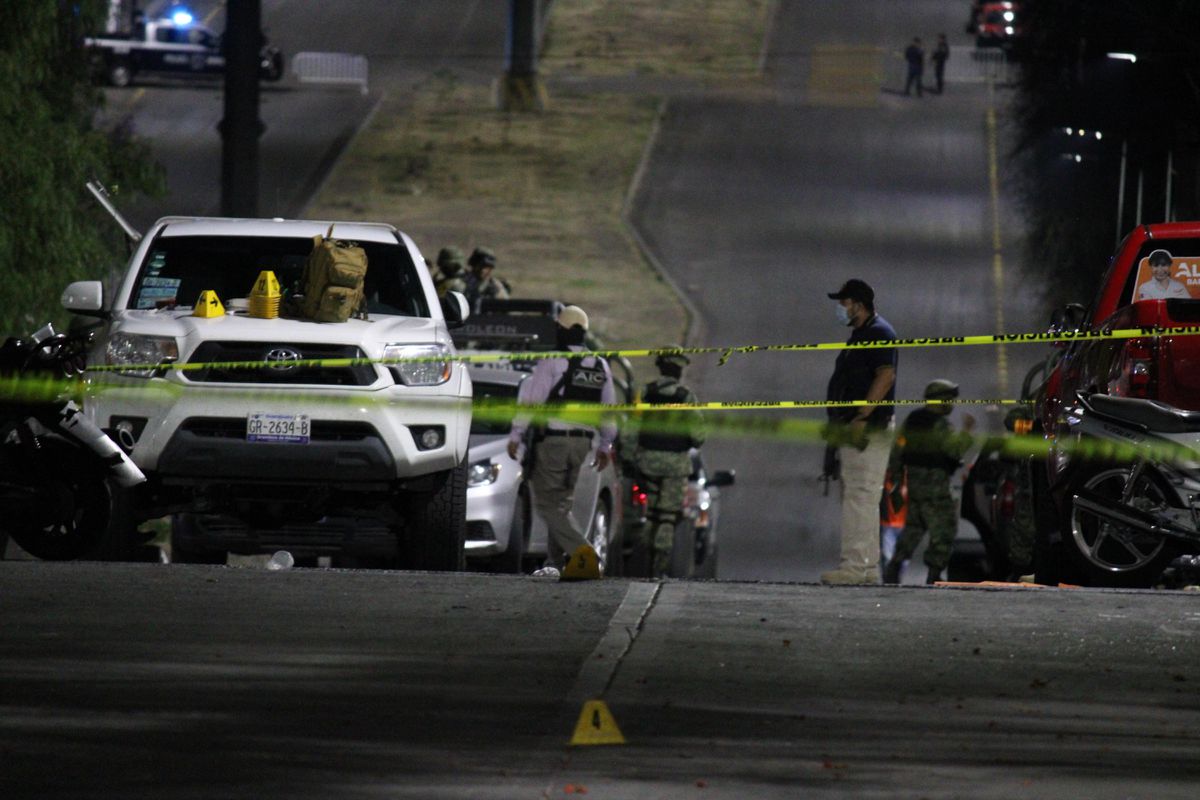
A new year begins and Mexico prepares for the penultimate election campaign of the six-year term. The PRI strongholds of Coahuila and the State of Mexico will be elected governors on June 4th. Coahuila also elects its new local congressmen. For more than 15 years, every presidential, state and local election campaign has been marked by violence and attacks on candidates, running mates and elected officials. This year’s elections represent a new test of Mexico’s rule of law.
The last three governments have not had smooth elections. High rates of violence in the country, which has recorded more than 30,000 murders a year for the past five years, have fueled campaigning, voting and power grabs. Also the same terms of government, three years at the local level and six at the state and federal levels. According to the consulting firm Etellekt, which monitors political and electoral violence in Mexico, since December 2006, when Felipe Calderón came to power (2006-2012), at least 220 mayors, councilors and trustees have been assassinated, resulting in a total of 48 murders.
In the following administrations the trend was the same, special mention for that of Enrique Peña Nieto (2012-2018). During his tenure, 107 mayors, trustees, and councilors were assassinated. With Andrés Manuel López Obrador in the presidency, a period that began in December 2018, the assassination of elected officials at the municipal level now totals 65, as of late December. The last was Isauro Ambrosio, Mayor of Rafael Delgado, Veracruz, who was shot dead in the city on December 31.
To the 220 homicides recorded in those 16 years, we must add fatal and non-fatal attacks against state and federal politicians and ex-politicians, whether campaigning or not. Such is the case, for example, of former Jalisco governor Aristóteles Sandoval, who was murdered in a bar in Puerto Vallarta just over two years ago. Or the candidate for the PRI federal deputy in Coahuila, Fernando Purón, who was killed in Piedras Negras in June 2018 after a debate with other candidates.
In this violent maelstrom, the 2021 election campaign, the largest the country has organized in its modern history, was also the bloodiest, behind only that of 2018. Mexico then elected 20,415 public offices, including governors, mayors, city councilors and MPs. In 2018, the country counted around 800 attacks on candidates and politicians, more than were registered in the last presidential election campaign.
The scale of the crime wave is inversely proportional to prosecutors’ ability to solve crimes, a reality that transcends the political tableau. According to the organization Impunidad Cero, which published a study in December on the degree of impunity for murder and femicide in the country, only seven out of 100 cases are solved. The rest remains unsolved.
For other crimes, the picture is not much better. The University of the Americas, Puebla (UDLAP) regularly compiles the Global Impunity Index, which calculates the probability of a crime being solved based on a number of indicators, such as the number of prosecutors or judges per inhabitant, the crimes recorded or the convictions achieved. By 2022, the UDLAP calculates that the country’s index has increased to 60 out of 100 points, taking into account the average of the data from the states. On a case-by-case basis, there are some states that have a lower index and a higher index, such as the state of Mexico, which is the worst on the list with a score of 75 out of 100.
Morena’s push
The smaller size of this year’s election means there will be a drop in violence compared to 2021 or 2018, at least in absolute terms. Whether the dynamic will change remains to be seen. In Coahuila and the state of Mexico, the PRI faces the Morena push and the possibility of losing power in areas it never left to rule. In both cases, the competition seems tight, although the picture is slightly different.
In the northern state, López Obrador’s party enters the new year divided, with part of the regional structure rejecting Senator Armando Guadiana’s candidacy. Late last year, Guadiana won Morena’s internal election and won the candidacy for governor. His rival, the current Secretary of State for Security, Ricardo Mejía, was initially unaware of the poll results, but then gave in. However, part of the Morena State Council insists on rejecting Guadiana’s candidacy.
Something else is happening in the state of Mexico. Morena has a consensus candidate, Delfina Gómez, in the country’s most populous region. The former federal education minister ran in the 2017 gubernatorial election, which was won by PRI candidate Alfredo Del Mazo, a cousin of then-President Peña Nieto. Gómez almost won, a victory that seems more possible than ever this year given the split in the opposition, which is at a loss as to whether or not to form a coalition.
In previous competitions, organized crime has so influenced campaigns that it has forced the withdrawal of candidates, despite attacks and threats being directed at the local level. In 2021, for example, La Familia Michoacana reportedly threatened the Va por México coalition candidate for Valle de Bravo mayor Zudikey Rodríguez. The candidate withdrew from the election. In 2018, candidates for various Coahuila mayoral offices also denounced threats against them.
Subscribe here to the EL PAÍS México newsletter and receive all the important information about current events in this country

